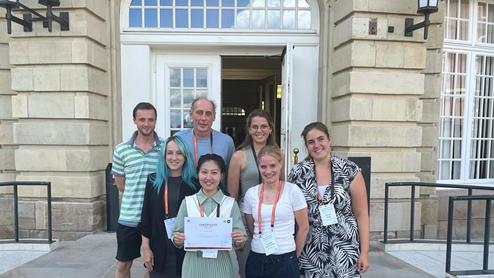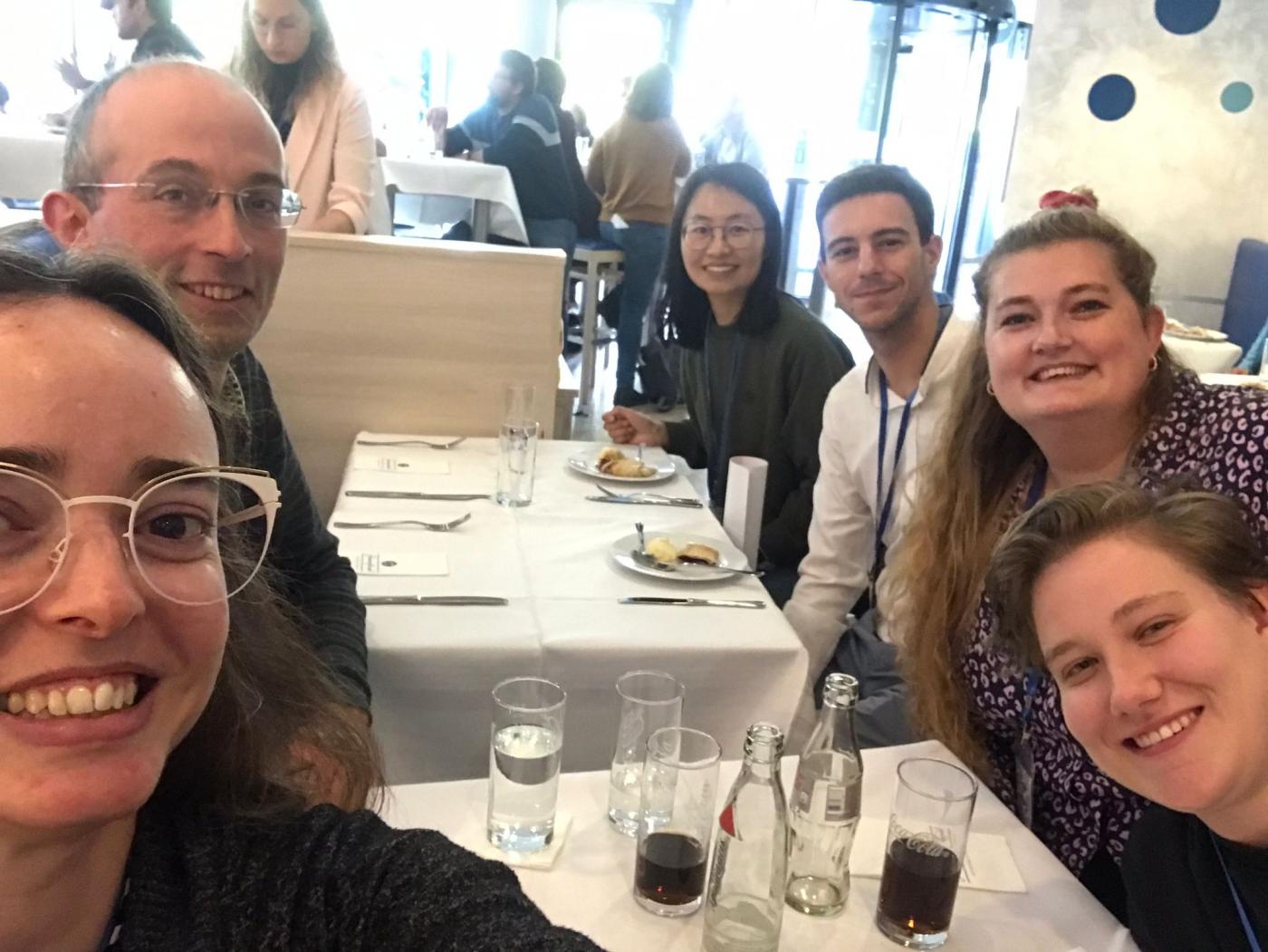Next round of applications in January
Getting a UU grant to attend a conference: Master's students flock to new initiative

Since the beginning of the month, the website of the grant "Craving Science? Discover conferences!" displays the words SOLD OUT written like that, in capitals. It would have probably been a success even without its enticing title. After all, the offer was incredibly tempting: Master’s students could get up to 500 euros reimbursed for the costs of attending a scientific gathering abroad. The 75 grants available were taken in less than four weeks.
If you were too late, don't worry, there’s more to come. Last week, the university announced a second round for the aforementioned grant, to which Master's students can apply from January 1.
Making up for missed experiences abroad
The students have the National Education Programme (Dutch acronym: NPO) to thank for the grants. That's a funding programme from the Dutch government which aims to alleviate the damage done by the Covid-19 pandemic to the educational sector. UU decided to use some of the funds received through the NPO programme to give Master’s students the opportunity of having an international experience.
Project leader Maaike Goselink: “Because of Covid, an entire generation of Bachelor's students had a hard time going abroad on exchange. Those students are now at the Master’s level, when it's harder to stay abroad for the same amount of time a Bachelor's programme allows. With this grant for shorter stays abroad, we hope to give students the possibility to look beyond borders.”
Goselink is happy to see how excited students are about the grant and the interesting destinations they're choosing to travel to. To name but two examples, students requested grants for a summer school in Norway and for the well-known Nobel Prize meetings in Lindau, Germany. “We just wish there were more applications from students from the Humanities and Social Sciences. So far, almost all applications were from students from the Faculties of Science and Medical Sciences.”
Figuring out what you want
One of the students who applied for a grant is Annick Kooij, who's pursuing a Master's degree in Molecular & Cellular Life Sciences. In September, she attended a two-day conference about influenza in Munich, Germany, for which she received 375 euros from the university. This amount covered the costs of attending, renting an apartment through AirBnB, and carpooling.
“I’m doing an internship at the virology lab of the Faculty of Veterinary Medicine, where I conduct research on the influenza virus. So, this conference seemed like it would be very interesting to me. When I got an e-mail from the university about this grant programme, I applied right away. Several of my friends, who knew I would like to go to Munich for the conference, forwarded me the e-mail too. So, apparently a lot of students were aware of the grant.”
Annick says the visit was very useful. “It’s very stimulating and inspiring to see the big names from your discipline in real life, and hear them talk. Or to talk with researchers one on one. At the same time, a conference like this helps you think about what you do and not want to do after your studies.”
Without the reimbursement, she probably would have paid for the costs herself. “But then I wouldn't have been able to do certain things. There are probably plenty of students who would pass on an opportunity like this if they cannot afford or think it's too expensive. That’s why this is a really good initiative.”
Travelling sustainably
Goselink says there weren’t many conditions and requirements to get the grant. Students only had to submit a motivation letter and a budget. However, they did have to show that they were traveling "sustainably", which means the destination had to be in Europe.
As a result, most students travelled to their destinations by bus or train but there were some exceptions. Goselink: “There was a group that wanted to go to Portugal. We agreed with them that we’d cover half of the costs of their flight, for which they would pay extra to compensate for the CO2 emission.”
In the end, almost all applications were approved. Only two students were disappointed. “One of the applications was it for a one-hour meeting. That's not enough.”
The ones who did get the grant also had to join a LinkedIn group, now with 114 members, where they report their experiences. Most posts are from students sharing photos and texts, but there is also a warning from a UU employee saying students should be careful about the offers they receive in their inbox about attending conferences, as they can be fraudulent.

Guest researcher Bas Dutilh with the students Louise en Levi (right). Photo: courtesy of Dutilh.
Teachers encourage students to apply
Maaike Goselink also noticed that teachers and study programmes welcomed the initiative, encouraging their students to participate. She says a great example is guest researcher Bas Dutilh, a biologist linked to the Utrecht Metagenomics Group (MGX). He notified MGX interns about the possibility of obtaining a grant.
When two students indicated their interest in attending a conference on systemic biology in Berlin, which a number of UU researchers would be attending as well, Dutilh made sure the two would get some other financial extras aside from the grant.
First, he rented an Airbnb in Berlin for four employees and the two students. The costs would be paid for by travel funds available to his research group, which meant the students did not have to pay for their stay.
Speaking with DUB on the phone, still in Berlin, shortly after the conference, Dutilh says: “Usually, everyone’s in a hotel, but this summer was the first time I spent time with colleagues in an AirBnb. It isn’t always cheaper than a hotel but it is a lot more fun and I thought the students who were attending the conference would feel the same.”
Moreover, Dutilh, who is also a professor in Jena, Germany, advanced the Early Bird costs of the conference, which meant the students only had to pay 400 euros rather than the regular 500. At that time, the two weren’t yet completely certain that they would get the grant. “That was a small risk, but I had faith in them receiving the grant,” he says, laughing.
In Dutilh's view, the grants are “a great initiative”. “This can be really valuable for students. A student also presented a poster here. He’s now thinking about doing a second internship in Potsdam, with a researcher he met during the poster session.”
Sailboat
A total of 75 more grants will be available in the second round. Students who received a grant in the first round are not eligible so that more students have access to financial support.
Goselink says that students will be “challenged” to travel sustainably to their destination even more than in the first round. “There’s already one student who wants to travel to a meeting in Sweden by sailboat.”